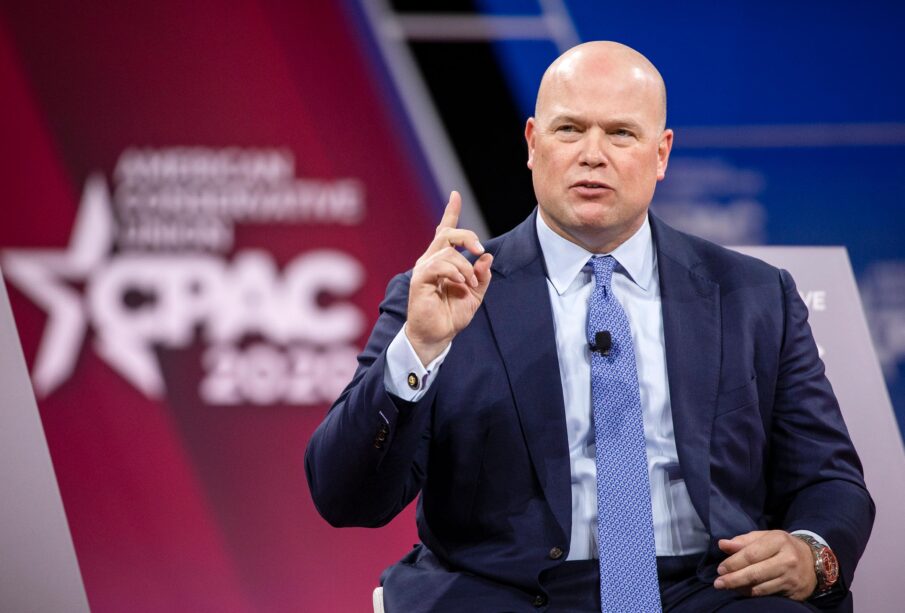
THE HAGUE, Netherlands — As NATO leaders prepare to gather in The Hague for a historic summit, U.S. Permanent Representative to NATO, Ambassador Matthew Whitaker, held a virtual press briefing Monday emphasizing the urgency for Allies to meet an ambitious 5% of GDP defense spending target—a dramatic escalation from the long-standing 2% benchmark.
“This summit is about NATO’s credibility,” said Ambassador Whitaker, who joined the press from The Hague ahead of the high-level meetings. “Thanks to the bold leadership of President Donald J. Trump, NATO is on track to achieve a historic commitment.”
The 5% target, Whitaker noted, isn’t just symbolic—it’s a structural pivot intended to ensure NATO’s readiness against modern threats, including Russian aggression, cyberwarfare, and emerging challenges in space. Of the 5%, 3.5% is earmarked for core military capabilities—tanks, aircraft, and weapon systems—while 1.5% is designated for defense-related spending, such as military mobility infrastructure and cybersecurity resilience.
“The first shot of the next war will be a cyberattack,” Whitaker warned. “Not a tank crossing a border.”
Holding Allies Accountable
In response to concerns about whether this new goal might end up as another unfulfilled pledge, Whitaker was firm: regular reporting and peer accountability mechanisms will be in place to track year-on-year progress. “There’s not an unlimited timeframe here,” he said. “Our adversaries will not wait for us to be ready.”
President Trump has reportedly pushed for a tight deadline—with some U.S. officials eyeing 2030 or earlier as an informal benchmark. While countries like the U.K. have signaled openness to longer timelines, Whitaker emphasized the urgency of the current threat environment, particularly in Eastern Europe and the Indo-Pacific.
The Netherlands at the Heart of NATO
Whitaker praised the Netherlands as a “super important Ally,” applauding its defense investments and leadership in innovation. He also highlighted the unique role of Dutch Prime Minister Mark Rutte, who will soon take office as NATO Secretary General. “The Netherlands is really the heart and soul of this Alliance,” Whitaker stated.
Indo-Pacific and Global Posture
The ambassador also addressed U.S. coordination with Indo-Pacific partners, calling for similar defense spending increases. “Strong Allies are capable Allies,” he said, referring to the need for integrated deterrence against threats posed by China, North Korea, Iran, and Russia.
When asked about the ongoing U.S. Global Posture Review, Whitaker deferred to the Pentagon but reaffirmed the U.S. commitment to synchronizing any troop realignments with increased European capabilities.
Russia-Ukraine War: Peace Still Possible
Concluding the session, Whitaker responded to a question about Russia’s intentions in Ukraine. He condemned recent Russian attacks on civilians and reaffirmed the U.S. position that a diplomatic solution remains the only path forward.
“There’s no military solution to the Russia-Ukraine war,” he said, adding that President Trump has urged restraint from both sides and expects “good-faith dialogue” to eventually prevail.
Looking Ahead
With world leaders converging in The Hague this week, the summit is expected to shape the future of NATO amid rising global instability. Ambassador Whitaker expressed confidence that the commitments made will result in stronger defense, greater prosperity, and long-term peace for all 32 member states.
New York 24 will provide live updates and analysis throughout the NATO Summit.









